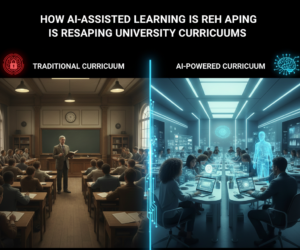Type of Interesting Topics to Study

Type of Interesting Topics to Study
You must use theoretical and practical knowledge and offer your own scientific contribution, making research paper writing difficult. However, picking a unique and complicated subject to explore may be the most challenge. This post will provide you some unique and intriguing research paper themes so you may choose something you like or come up with your own.
Create fresh engaging research paper themes that are current initially. This will lead to great scientific breakthroughs. Additionally, you might select a contentious research paper subject to amaze your adviser or classmates. Such topics inspire many class disputes, and professors and instructors appreciate the writing effort, so you will obtain a good grade on this study.
Finally, we have listed the greatest research paper themes to assist you select one that will help you produce a great report.
2025’s Important Topics
Consider global concerns for your 2025 essay subject. Artificial intelligence is changing sectors, making it a trendy topic. Climate change is critical and offers several sustainability perspectives. Mental health awareness is rising, making it important. As technology advances, digital privacy becomes increasingly important. New discoveries in space exploration stir interest. Remote and automated labor are transforming jobs. Political disputes need analysis. Explore social media’s influence on disinformation. Life-improving healthcare advances. Finally, writings on human rights are usually interesting.
Consider your hobbies and where you may discover powerful arguments when picking an essay subject. Consider what interests you and where you may contribute. A good subject makes writing easy and helps you write an engaging essay. Choose one that intrigues you.
1. AI research topics
Artificial intelligence is increasingly changing business, education, and life. Ethics, automation, and machine learning are increasing study priorities as AI improves. Students studying AI may examine its effects on employment, security, and decision-making and weigh its pros and downsides.
- AI’s influence on job automation and employment.
- Healthcare AI decision-making ethics.
- How AI affects cybersecurity and data protection.
- AI-powered virtual assistants: Privacy vs. efficiency.
- Crime prediction and prevention using AI.
- Personalised education via machine learning.
- AI’s impact on combat and defense.
- How AI-generated material affects journalism and media.
- AI algorithm bias and societal effects.
- AI and deepfake: dangers and solutions.
- Climate change prediction and environmental conservation using AI.
- Artificial general intelligence—real or fiction?
2. Climate Change Research Topics
Climate change is a major worldwide issue impacting ecosystems, weather, and economy. Climate change research lets students examine its sources, effects, and remedies. Understanding legislation, renewable energy, and personal responsibility may help create a sustainable future.
- The worldwide food security implications of climate change.
- Rising sea levels impact coastal cities.
- Deforestation accelerates climate change.
- Comparison between renewable and fossil fuels.
- International climate accords’ efficacy.
- Impacts of climate change on biodiversity.
- Climate change affects natural catastrophes.
- Personal vs. corporate carbon footprints.
- Causes and effects of climate denial.
- How sustainable agriculture fights climate change.
- Green technology and carbon reduction.
- Slowing climate change by geoengineering.
3. Mental Health Research Topics
Mental health is increasingly considered essential to well-being. Mental health causes, treatments, and societal perspectives are studied in this discipline. Students might examine how technology, culture, and mental health legislation affect treatment and awareness.
- The mental health effects of social media on teens.
- Mental illness stigma throughout civilizations.
- Depression treatment effectiveness: therapy vs. medicine.
- Stress’s effects on immunity and health.
- How workplace policies help mental health.
- Trauma from childhood affects adult mental health.
- Diet-mental health relationship.
- COVID-19’s impact on mental health care.
- Remote learning and student mental health.
- Stress-reduction methods for contemporary civilization.
- How mental health diagnoses employ AI.
- Managing mental illness with fitness.
4. Digital Privacy Research Topics
With more digital activity, privacy issues are growing. Students exploring digital privacy may examine its effects on security, ethics, and regulations, from data monitoring to cyber dangers. Studying how organizations, governments, and people manage privacy rights is crucial.
- Data breaches and personal security.
- Personal data collection and usage by social media businesses.
- Facial recognition ethics.
- Cybersecurity laws’ digital crime prevention.
- Smart home and digital spying hazards.
- Protecting digital communication via encryption.
- Public Wi-Fi risks and safety.
- How firms profit from user data without permission.
- Personal privacy vs. government spying.
- Mental health impacts of cyberbullying and harassment.
- How social media algorithms disseminate misinformation.
- Biometric authentication raises privacy problems.
5. Space Exploration Research Topics
Space exploration advances human knowledge and technology. Planetary exploration, space tourism, and interstellar travel may be studied here. As Mars colonization and commercial spaceflight gain popularity, several vital concerns must be explored.
- Mars human colonization viability.
- Space exploration by commercial enterprises.
- Asteroid mining ethics.
- Space travel’s psychological and physical effects.
- Finding alien life: scientific methods and obstacles.
- Space debris’ influence on future missions.
- Research value of the International Space Station.
- AI and robots in deep space exploration.
- Future of space tourism and economic possibilities.
- Climate change impacts space exploration.
- Space law’s role in space regulation.
- Earth-development advantages of space research.
6. Workplace Evolution Research Topics
The workplace evolves owing to technology, globalization, and societal developments. Researching workplace trends including remote work, automation, and diversity helps students grasp job changes. The future of employment requires exploring workplace regulations and ethics.
- The increase of remote work: Pros and cons.
- Automation changes conventional occupations.
- Job security and gig economy employment.
- Effectiveness and problems of workplace diversity and inclusion initiatives.
- Hiring and managing employees using AI.
- A four-day workweek’s impact on productivity and well-being.
- Workplace stress and mental health/performance.
- In contemporary jobs, work-life balance matters.
- Globalization and career prospects.
- Corporate culture and employee happiness.
- Monitoring at work: ethical issues.
- Future job marketplaces and soft skills.
7. Global Conflict Research Topics
International politics, economy, and relations are shaped by global wars. Students learn about historical patterns and present issues by studying conflict causes and repercussions. Students may explore conflict resolution options by studying diplomacy, war, and peace.
- Diplomacy in international conflict resolution.
- War’s influence on civilians.
- Economic sanctions’ worldwide impact.
- Modern warfare propaganda.
- Resource shortage and war.
- Rising cyberwarfare and national security risks.
- Effects of nuclear weapons development.
- International organizations and conflict resolution.
- Transformation of terrorism in the digital era.
- Global economic effects of conflict.
- How climate change causes global wars.
- War-prevention efficacy of peacekeeping deployments.
8. Social Media Influence Research Topics
Social media has transformed communication, employment, and information. This research examines its psychological, social, and political impacts. Navigating the digital world requires understanding its effects on relationships, business, and disinformation.
- Social media influences politics and public opinion.
- Influencers shape customer behavior.
- Social media and mental health.
- How social media promotes bogus news.
- Effective or staged social media activism?
- Constant connectedness affects relationships.
- Social media privacy hazards.
- How social media impacts productivity and attentiveness.
- Social media content curation using AI.
- Social media’s influence on journalism.
- Social media targeted advertising ethics.
- What social media does to cancel culture.
9. Human Rights Research Topics
Human rights study addresses freedom, justice, and equality’s legal, social, and ethical challenges. Students might study discrimination, resource access, and international policy to discover how human rights influence societies.
- How social media affects human rights action.
- Global policy impacts of refugee crisis.
- Human trafficking causes, prevention, and issues.
- Cross-cultural gender equality.
- International courts’ human rights protection function.
- Modern society’s need for free expression.
- Poverty and inequality impact human rights.
- The ethics of widespread monitoring.
- Racism and legal systems.
- Indigenous rights in contemporary countries.
- Climate change impacts human rights globally.
- Education’s role in human rights.
10. Healthcare Innovation Research Topics
Medical advances in diagnosis, treatment, and prevention continue to transform healthcare. Telemedicine, customized medicine, and artificial intelligence may be examined by healthcare innovation students to determine their effects on patient care. The future of healthcare hinges on integrating these advances to enhance results and accessibility.
- AI in early illness detection.
- Telemedicine’s influence on rural healthcare.
- Personalised and genetic medicine advances.
- Future wearable health technology for illness management.
- Robotics’ impact on surgery and care.
- Big data and analytics in healthcare decision-making.
- The development of CRISPR for genetic disease prevention.
- Blockchain’s influence on healthcare data security.
- Prosthetics and organ transplants using 3D printing.
- Virtual reality in medical education and training.
- Nanotechnology in medicine delivery.
- AI healthcare diagnostics ethics.




